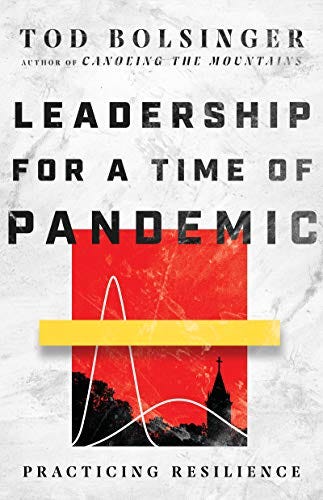“Will this Encouragement Note be valuable to me?” I hope the answer is “yes.” My intent, as I prepared this “Encouragement Note #10” is to offer you something you might find valuable. Perhaps in some way this will be helpful and encouraging as you navigate your life and work with its whirlwind of challenges.
Each issue offers “The List of Five.”
The List of Five
What you are learning right now may be so significant
(Take away: As challenging as this pandemic has been for us all, perhaps there are some things learned which may prove to add value to our lives for many years.)
Recently, I have been thinking about the various decades of my life. For me, my 60s has been the hardest, most challenging of any decade. Disappointments and unforeseen challenges can add up. Of course each of us has a story and may experience intense challenges early, middle, or late in life. A person can be reduced to being bitter, and cynical. Or, one can learn to take a different path. For me, this path has been about investing in what brings me energy and joy, so that in some way I am living out of the overflow of my life. All of this is rooted in the very life of God, experienced through Jesus (John 10:10).
Lately, I have particularly mindful of what I have learned during this pandemic. I have become even more convicted regarding the critical need for intentional self-care. For me this includes: attention to particular spiritual disciplines; exercise; being outside each day; contacting life-giving friends just to check-in; laughing; watching minimal news; reading books that feed my mind/heart, etc. Attentiveness to this self-care has been a real priority for me right now.
I asked a few friends what they were learning during this world-wide pandemic. Note the reflections below. They are excellent!
Greg Dowell (Associate Minister, Central Church of Christ, Amarillo, Tx.)
I have been reminded that I’m a human being. I’m going through this crisis like everyone else. Too often I try to care for others during difficult times and I neglect myself. When my rhythms get off track, I continually find myself ministering from a place of emptiness. That can be exhausting. Being intentional about carving out time for prayer, relationships, exercise, family, play and rest allows me to personally deal with this the crisis at hand. And it’s the best gift I can give to others.
Becky Burroughs (Outreach Minister, Highland Oaks Church of Christ, Dallas, Tx.— most importantly - my sister)
I learned about the power of my thoughts. When my thoughts are negative, I feel fearful, anxious and sad. I become stuck.
When I focus on opportunity, I feel curious and hopeful. I become productive, creative, and imaginative.
Bottom line: as go my thoughts, so go my feelings and then my actions. Reminds me of Proverbs 4:23 “Above all else, guard your heart, for everything you do flows from it.”
Dusty Rush (Campus Church, Norcross, Ga.)
I have been learning that a deep, spiritual relationship with God does not flourish in isolation. This is the opposite of what I once believed. I tried to practice disciplines that silenced the world so that I could hear God…which can be valuable. But I never learned to listen for God in others…to imagine that love experienced in community is what relationship with God is, because God is a community of love - Father, Son, and Spirit.
Shon Smith (Naperville Church of Christ, Naperville, IL.)
I have learned to be more observant of my thought life. Thoughts about past failures or future uncertainties often loop in my mind. If I do not recognize and deal with them, they keep me from being fully present. I have found journaling and going on long walks to be a great outlet for dealing with those self-sabotaging thoughts.
Dr. Bill Petty (Professor of Finance - Retired, Baylor University)
I have come to value margin in my life all the more. Previously, I kept my daily life so full. I now have more time to reflect on how I want to finish well as I approach 78 years of age. I have mentally moved from activities to having more time for affirming others.
Help for Developing Resilience
(Take away: There are practices available for anyone who wishes to grow in the capacity to be resilient. These practices may be life changing!)

Tod Bolsinger has written a helpful new book, Leadership for a Time of Pandemic: Practicing Resilience (available in Kindle form and of this writing is only $3.99). This book is actually a preview of a much more thorough book which will be available later in the year (2020).
This is particularly interesting to me because of the word “resilience.” I want the capacity to bounce back, to recover, to continue on, even after disappointments and challenges. Only in the last few years have I really begun to appreciate the importance of this.
Part of the book description on Amazon includes the following:
For decades, Tod Bolsinger has helped leaders learn to adapt to a rapidly changing world that seminary training had not prepared them for. Now he has provided a unique resource applying some of his key insights to the current global crisis. Leadership for a Time of Pandemic draws from Tod's popular book Canoeing the Mountains to describe the basics of adaptive leadership in uncharted territory. Then, in a preview of his forthcoming book Tempered Resilience: How Leaders Are Formed in the Crucible of Change, he focuses on how to create a rule of life in order to stay resilient.
This brief, timely book is an ideal resource for leadership teams to explore together. Christian leaders in any context will find wisdom and encouragement to provide the kind of resilient leadership that has never been so necessary.
Bolsinger appeals to Christian leaders to begin doing or practicing what will enable us to become more resilient. This is more than what one might be thinking or praying about. Rather, he invites the reader to consider practices that could make a great difference. “Practices, then, are not about learning intellectual concepts but about developing bodily capacity. Practices create a kind of spiritual muscle memory, training us to respond to a crisis and resistance like it is second nature.” (Kindle Location 282)
Two of these practices include “listening” and “looking.” (Bolsinger gives examples of disciplines for each one of these practices). I find this encouraging because these practices are within our reach as Christ-followers and Christian leaders. The practices of listening intently and learning to pay attention to others are significant!
Consider the following:
“Listening turns the attention of a leader to other people’s pain points instead of our own institutional survival or grand projects. Listening helps us focus our energy, build momentum, and strive to make a genuine difference.” (Location 381)
“The key attribute for being a good adaptive leader is the ability to resist default reactions to crises and instead to pause to see the issue at hand in all of its complexity.” (Location 472)
Bolsinger concludes by telling the reader of his own growth as a resilient leader: “Part of what had changed my mind and prepared me to lead my team over the following weeks were the practices in this ebook: Listening and looking: Attuning and adapting.” (Location 517)
Add Value to Your Leadership and Influence
(Take away: Note what leaders did who led during periods of intense crisis. We can learn much from these people.)
Nancy Koehn is a business historian at Harvard Business School. Several years ago, she wrote a book, Forged in Crisis: The Making of Five Courageous Leaders, which made a significant impression on me and gave me clarity for my leadership. Recently, she was featured in a webinar in which she discusses practical leadership lessons learned from Ernest Shackleton, Abraham Lincoln, and Frederick Douglas. (I encourage you to watch the video of this webinar below).
Some of these insights and encouragements include:
We are currently living through the defining moment of our generation.
Get comfortable with the uncertainty.
Frame the stakes for your team.
Communication is key.
Taking care of one another is essential now more than ever.
(See Caroline Wright, Five Key Insights on Leading Courageously During a Crisis, April 30, 2020)
Encouragement You May Find Helpful
(Take away: Being a congregation during this time of pandemic is challenging. Yet, congregations are also learning much about what it means to be God’s people.)
Recently James Nored interviewed Dr. Lynn Anderson regarding “Shepherding Through the Current Crisis.” This interview took place in the form of a class (hosted by Austin Graduate School of Theology). Participants were from several different countries. I loved this interview!
Lynn Anderson said, “God-hungry people are not looking for a new building or bells and whistles attached to a program. They are looking for engagement with others, they are looking for acceptance, they are looking for connection, they are looking for community, they are looking for hope. . . This is the essence of what is there when you get the trappings stripped away. It is the first several centuries of the church.”
Resources
Seven Spectacular Libraries You Can Explore From Your Living Room. Very interesting.
Do you read “GatesNotes”? (the blog of Bill Gates) Typically I discover books that were previously unknown to me.
Some of you might enjoy Alan Jacob’s (author/Baylor University professor) newsletter Snakes and Ladders.
Don’t miss these stunning photographs - Winners of the 2020 BigPicture Natural World Photography Competition.
"Boxing is a poor man’s sport. It’s a sport that demands your outright respect. Most people look at boxing or any contact sport and say, “Wow, I couldn’t do that,” because they don’t possess the thing inside of us that makes us go through pain. It takes something to activate that. That’s what separates fighters from other people."
— Sugar Ray Leonard (See Daniel McGinn, “Life’s Work: An Interview with Sugar Ray Leonard,” Harvard Business Review, January - February 2020.)
Each Friday/Saturday, I post about ten tweets especially for ministers and other church leaders as they anticipate Sunday. You can find me @jimmartin.
Jim Martin serves as Vice President of Harding School of Theology, Memphis, Tennessee. You can find him at God-Hungry.org. His e-mail address is: jmartin9669@gmail.com. Feel free to write. I would love to hear what was encouraging or helpful.
















Share this post